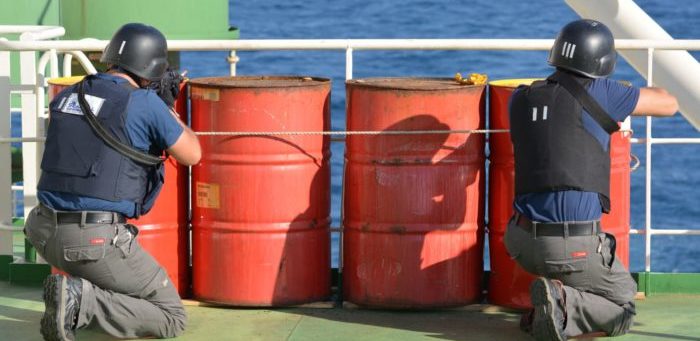In a recent statement, IMO Secretary-General Kitack Lim welcomed the latest initiatives to address piracy and armed robbery in the Gulf of Guinea, which has been a main piracy hotspot in the last years.
[smlsubform prepend=”GET THE SAFETY4SEA IN YOUR INBOX!” showname=false emailtxt=”” emailholder=”Enter your email address” showsubmit=true submittxt=”Submit” jsthanks=false thankyou=”Thank you for subscribing to our mailing list”]
Mr. Lim noted the efforts “send a strong and valuable message to the international community with respect to the considerable efforts Nigeria is making to curb piracy and armed robbery against ships in the Gulf of Guinea.”
The remarks came after a joint meeting between the government of Nigeria and representatives from organizations in the oil and shipping industries, on 28 May.
In the virtual meeting with Dr. Bashir Yusuf Jamoh, Director General, NIMASA, Mr. Lim also commended the work undertaken to develop the Best Management Practices (BMP) for West Africa, and highlighted “the importance of full application of the measures and reporting procedures contained therein.”
NIMASA, the Nigerian Navy, the oil industry (represented by OCIMF) and the shipping industry (represented by ICS, BIMCO, INTERCARGO, INTERTANKO and the Nigerian Shipowners’ Association) held their first meeting on 28 May to discuss the current situation and how to tackle the piracy problem in the Eastern Gulf of Guinea.
The number of incidents in the Gulf of Guinea decreased in 2019 by 14 incidents, to 67, down from 81 incidents in 2018.
However, the number of crew kidnappings in this region increased from 11 in 2018 to 20 incidents in 2019, in which 151 crew in total were reported kidnapped/missing – the highest number so far on record.
The data shows the number of incidents were almost equally split between those occurring in international waters, territorial waters and in the port areas in the region.
IMO works with Member States to develop their capacity to prevent and counter threats to port and maritime security through improved implementation of the international maritime security instruments and guidance.































































